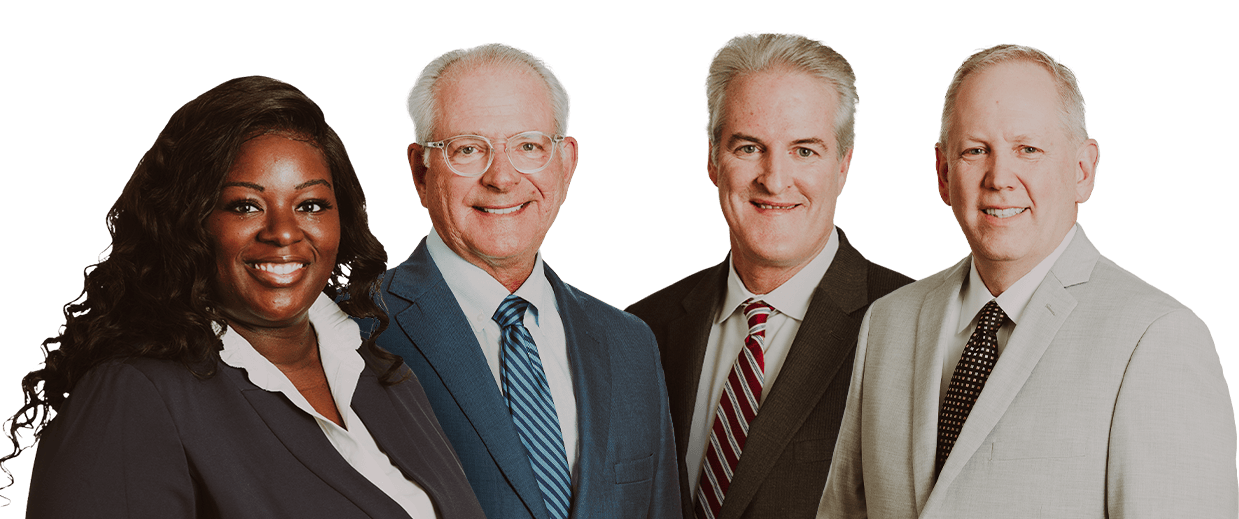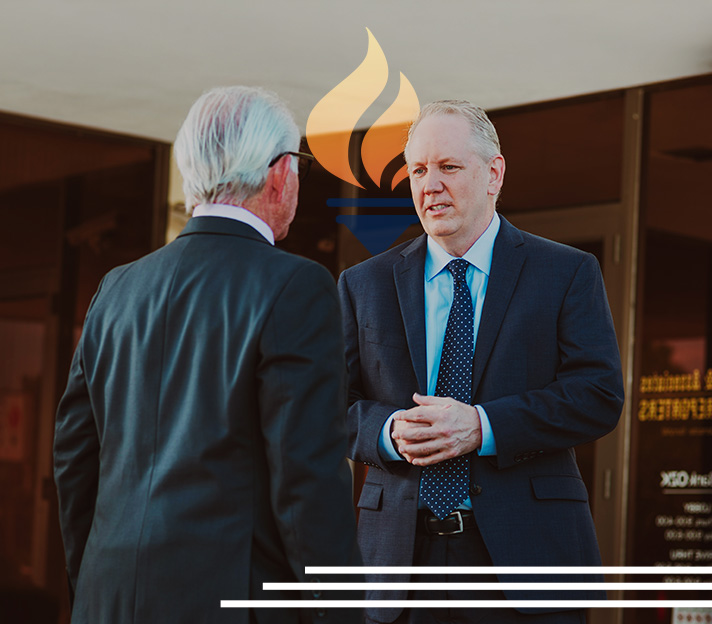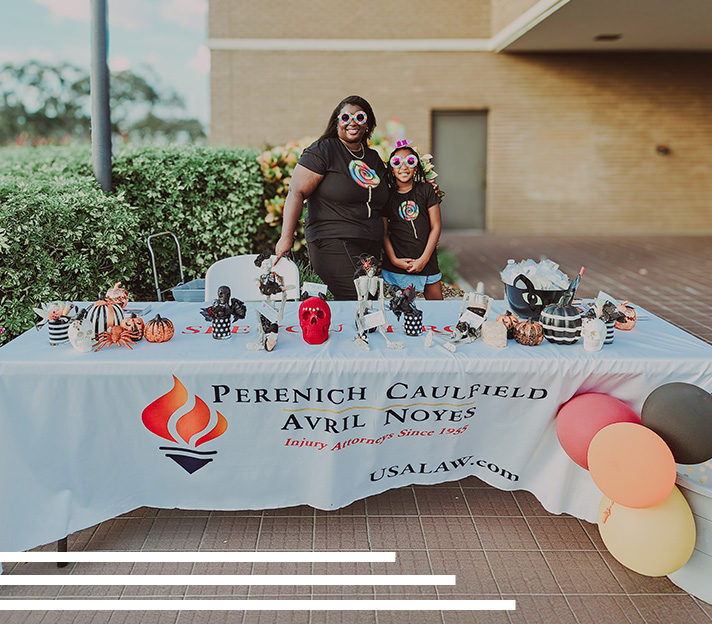Contingency Fee
If you are hesitant to hire a personal injury lawyer after an injury or accident because you’re worried about the cost, you are not alone. Unfortunately, many injured victims don’t seek legal advice due to their fear of expensive attorneys’ fees. As a result, many people miss out on compensation that can make them whole again.
The good news is that most personal injury law firms accept cases on a contingency fee basis. You do not pay any attorneys’ fees upfront with a contingency fee agreement.
What is a Contingency Fee?
A contingency fee is a payment to an attorney for legal services. Instead of charging a flat rate or hourly fee, the attorney charges a fee based on the amount of money they recover for the client. The contingent fee arrangement sets the percentage of the recovery that the attorney will receive for attorneys’ fees.
For example, if the attorney charges a 33% contingency fee and recovers $500,000 for a car accident case, the attorneys’ fee would be $165,000. The attorney deducts the fee from the settlement proceeds.
However, if the personal injury lawyer does not recover compensation for the client, the client does not owe attorneys’ fees. In other words, the attorney does not receive any money for legal services if they do not win the case.
Why Do Attorneys Use a Contingency Fee Basis?
Accident victims have to worry about how to pay medical bills and living expenses when they are out of work due to an accident or injury. Personal injuries can cause financial hardship for the injured person and their family. It could be impossible for the victim to gather enough money to pay a retainer fee.
However, an injured victim should not be “punished” because they cannot afford to hire a lawyer. On the contrary, they deserve skilled, experienced legal representation when they go up against a large insurance company and defense lawyers.
A contingency fee allows an injured individual to receive experienced legal counsel after an injury or accident. Most personal injury lawyers use contingency fees. As a result, an injured victim does not need to worry about paying an expensive retainer fee or keeping up with hourly billing statements.
Attorneys Should Charge Reasonable Fees and Expenses
The Model Rules of Professional Conduct (Rule 1.5) state that attorneys should not make an agreement for, collect, or charge unreasonable amounts for fees and expenses.
The percentage of contingency fees charged by an attorney is based on several factors, including:
- The type of case and the parties involved
- The time and effort the attorney anticipates spending on the case
- The attorney’s experience and record
- The average fees charged by other attorneys in the area
- Whether the case goes to trial
Attorneys should provide detailed reports of expenses incurred in the case. The contingency fee agreement should discuss the expenses the attorney will pay and the expenses the client must pay. Many attorneys pay expenses during the case and deduct those expenses from the settlement proceeds.
Examples of fees and expenses the fee agreement may discuss include:
- Fees for expert witnesses
- Court filing fees
- Copy fees, postage, and miscellaneous fees
- Deposition fees and other fees related to discovery
- Costs to obtain copies of medical records, police reports, and other records
- Mileage and travel expenses
Before signing a retainer agreement and contingency fee agreement, ensure you understand the fees and costs you are responsible for paying. Also, ask the attorney specifically about the expenses you may need to pay even if the attorney does not win the case.
Florida Rules of Professional Conduct for Contingency Fees
Contingency fees can be used in all personal injury cases.
However, the Rules of Professional Conduct Rule 4-1.5 states that an attorney cannot charge a contingency fee for:
- Family law cases in which the payment of the attorneys’ fee is contingent upon obtaining a divorce or the amount of support, alimony, or property settlement
- Representing a defendant in a criminal case
The rules also state that absent court approval, contingency fees in personal injury and wrongful death cases that exceed specific amounts are excessive. The rules specify maximum percentages based on when the parties resolve the case.
For example, if the matter is settled before an answer is filed or the other party demands the appointment of arbitrators, a contingency fee of more than 33 1/3% of recoveries up to $1 million would be excessive. The percentage for reasonable contingency fees decreases to 30% for recoveries between $1 million and $2 million. Any amount recovered over $2 million has a contingency fee cap of 20%.
The rules contain specific percentages that apply as the case proceeds to trial. The rules also discuss maximum amounts for contingency fees in medical liability claims. The rules help ensure that attorneys do not charge excessive fees for personal injury cases.
If you have been injured in an accident caused by someone else’s negligence, contact a personal injury lawyer from Perenich, Caulfield, Avril & Noyes Personal Injury Lawyers to discuss your case at (727) 591-3354. If you’re worried about the cost, ask the attorney if they accept cases on a contingency fee basis. And if they do, make sure you read the agreement and understand the expenses you’ll be responsible for and the percentage of fees the attorney will take if they win.

We treat you like family.
If you can’t come to us, we’ll come to you.
Representing Accident Victims in Tampa Bay since 1955



-
“Friendly knowledgeable and kept me informed about my case. Any offer, bill or question was readily answered. Would definitely recommend and refer people to Bryan Caulfield and his team!!”- Betty B.
-
“Mrs Bryant works her butt off to make sure you get what is do to you in medical and beyond! They won’t take your case if they don’t feel you haven’t been wronged.”- Christine R.
-
“Working with Mark Perenich on my auto injury case was an absolute game-changer. From the very beginning, he brought a level of professionalism, expertise, and care that immediately put us at ease.”- Kerry B.
-
“Lorrie and Allyson are phenomenal. I highly recommend them to anyone. It seemed like a never ending journey but I can’t thank them enough for diligently fighting my case with the greatest integrity, support and prayers.”- Former Client
-
“From the first day we met this law group I felt very comfortable and knew we would be well taken care of. This was our first experience filing for SSD, and was not disappointed. The lawyers are awesome and very professional.”- Shari J.
-
“Very nice they worked with you. Never ignored me with my case. Always on top to work with you. Thank you so much for all that you have done to help me! Very highly recommend.”- Margarita O.
-
“My appointed attorney was Jacqueline, Bryant. She is very compassionate about her client and work. When it comes to negotiation, she's a Beast and she gets the job done.”- Alaina J.
-
“What was particularly awe inspiring was the recall of facts and testimonies from medical personnel that Para Legal Ms. Josephine Elizabeth Angelo was able to make. Her memory and acumen for detail was admirable.”- Maylisa Y.
-
“Wonderful, impeccable, personalized, authentic, truthful, honest experience. Rare, real, and human firm.”- Sheryl G.


We’ve been proudly serving Clearwater, St. Petersburg, and the Tampa Bay area for generations. As the first personal injury law firm in Clearwater, our dedicated legal team brings over 300 years of combined experience to each and every case. If you’ve been injured and need support, please reach outtoday for a free consultation, we are here to help you.















